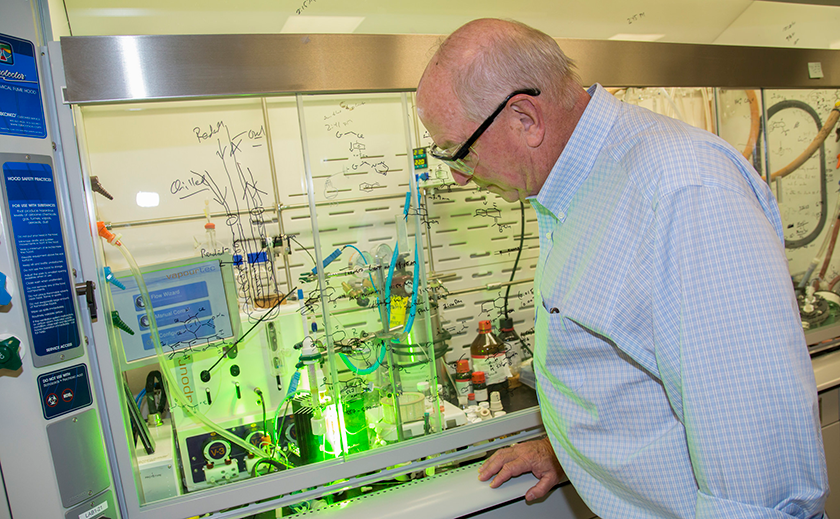Richmond, Virginia - With this grant, the Bill & Melinda Gates Foundation has invested nearly $10 million in funding to support a multidisciplinary project led by B. Frank Gupton, Ph.D. and chair of the Department of Chemical and Life Science Engineering. The project, Medicine for All Initiative, seeks to streamline drugs manufacturing to treat HIV and AIDS in developing countries.
Research is being conducted in partnership with the Clinton Health Access Initiative and collaborators at MIT and the University of Washington. This new phase of the Medicine for All Initiative builds on the project’s earlier success achieved with a first-line therapy for the treatment of AIDS. “We are applying the same principles that we used to drive down manufacturing costs associated with nevirapine for these new drug targets,” Gupton said. “The lesson that we’re taking away from our initial work is that we must be on the right track and this new investment from the foundation just reinforces that.”
Gupton’s team will find ways to drive down the costs of manufacturing the AIDS drugs tenofovir and darunavir. “Over the lifetime of a HIV-infected patient, they may develop resistance. So they need to have these other drugs, such as darunavir, available as a backup,” Gupton said. “But the problem …[with] second-line treatments is that the volume of supply can sometimes be smaller and so they can be prohibitively expensive for many patients.”
BRINGING PHARMACEUTICAL ENGINEERING TO RICHMOND
Barbara D. Boyan, Ph.D., dean of the School of engineering, said the school is proud of the innovative work being done by the Medicine for All Initiative. “The School of Engineering is proud of the Gupton team and its role in improving the health and welfare of not only Americans but also the global community,” she said. “Medicine for All is part of a larger VCU initiative that’s brought pharmaceutical engineering to Richmond in a big way. We look forward to continuing the participation of our students’, faculty’s and staff’s expertise to this endeavor.” The larger initiative Boyan refers to is the creation of a pharmaceutical engineering Ph.D. program at VCU to forge new paths for drug candidates and improved patient treatments.
The VCU Center for Pharmaceutical engineering will be one of only two pharmaceutical-engineering focused sites available in the U.S., which will partner with the School of Pharmacy and the VCU Medical Center. Alongside Gupton, the project involves several collaborators across the country, including Timothy F. Jamison, Ph.D., chair of the Department of Chemistry at MIT, and Brian Marquardt, Ph.D., head of the Center for Process Analysis & Control at the University of Washington.
“The really nice thing about this project is that from the time you come to a solution to a problem and when it actually gets implemented is a lot shorter than you often see in academia,” said Gupton. “Part of that is because we have this network of the foundation and the Clinton Health Access Initiative to facilitate these innovations and improvements out of our laboratory and into the marketplace.”
